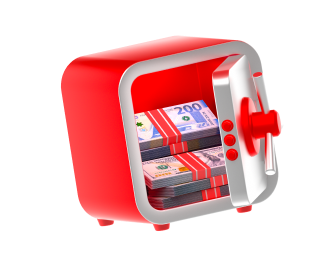“We encourage our customers to use online banking services to avoid queues”

In recent months, due to a special quarantine regime announced on the territory of the country, in order to prevent the accumulation of large numbers of people in enclosed spaces, clients are allowed to enter many service facilities one by one. This, in turn, provokes the formation of queues. An “explosion” of activity is also observed in front of the branches of commercial banks.
Ramil Imamov, Chief Director for Retail Sales of one of the largest banks in the country, Kapital Bank, spoke about this and the situation in the banking sector in general.
- Recently, as in a number of pandemic-related service centers, we are witnessing crowds and long queues in front of banks. The queues in front of Kapital Bank's branches are not left unattended. In the current situation, we would like you to comment on the reasons for this.
- As you know, since March of this year, a special quarantine regime has been applied in the country as part of measures to combat coronavirus. However, as in a number of places, it is recommended to observe social distance in bank branches, to eliminate overcrowding in closed spaces and sometimes not to open branches on non-working days, as well as on holidays. Let me note that Kapital Bank serves more than 3 million individuals and more than 22,000 legal entities across the country. Our bank also acts as a partner in a number of social projects of state importance. I can mention pension cards, social cards, farm cards and other payments. Our bank is currently a leader in the country in terms of the size of its branch network. The Inshaatchilar branch, which we opened for our customers a few days ago, is the 118th service point.
As for the queues in front of the branches, I would like to say that only 50% of our employees are employed at our service points across the country. In other words, the branch previously had about 8 employees on operations, but now 4 employees are involved in this field. At the same time, by the order of the President, the payment of one-time benefits to unemployed people and low-income citizens, as well as small and medium-sized entrepreneurs began. Unlike many other banks, Kapital Bank acts as an intermediary in the issuance of these benefits. The above mentioned factors are the main reasons for the increase in the influx of customers to the branches and the formation of queues.
- How do you see the way out of this situation?
- In addition to all of the above, I would also like to note the clients who come to branches to carry out currency exchange operations, transfer funds, open cards or current accounts, place deposits, as well as extend the term of valid payment cards. Carrying out these operations with 50% of staff takes more time and leads to queues in front of branches. We recommend our online and digital services to customers who come to the branches for traditional banking operations. Customers can now provide a number of services through the BirBank application, so they do not need to come to the branches.
- As we know, Kapital Bank has been selected as the authorized bank for the payment of protected deposits in closed banks. This means an influx of additional people to the branches ...
- That's right. Starting from June 1, those who have protected deposits in AtaBank and Amrahbank in Baku have withdrawn the funds paid by ADIF through Kapital Bank, and this process is still ongoing. Unfortunately, in accordance with the requirements of today's legislation, it is still not possible to digitize this process. However, the use of digital channels for such projects, the return of funds through a digital card is one of the topics actively discussed.
As for the queues in front of our branches, these queues are regulated by the employees of the Ministry of Internal Affairs. In addition, special signs have been placed in front of the branches for citizens to observe the social distance, and this work is still underway. We hope that the special quarantine regime in the country will end soon and we will return to the working conditions we are accustomed to.














